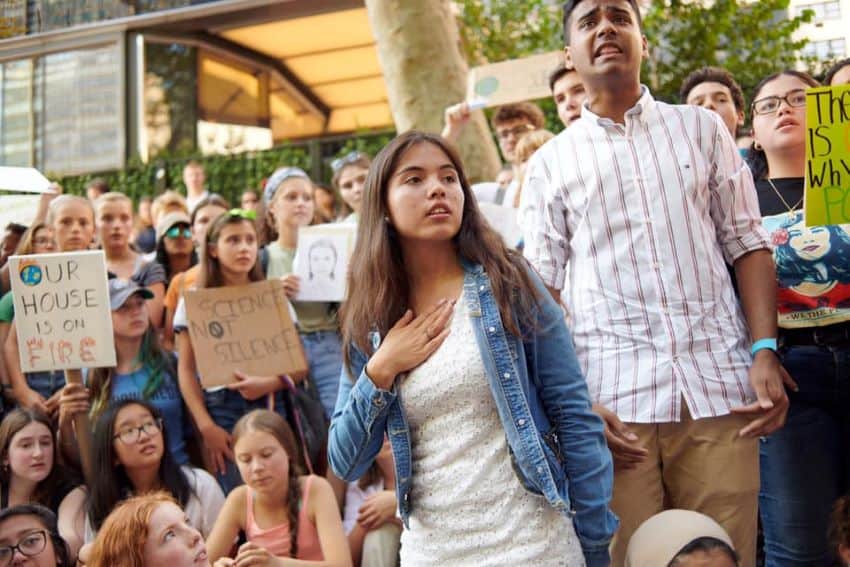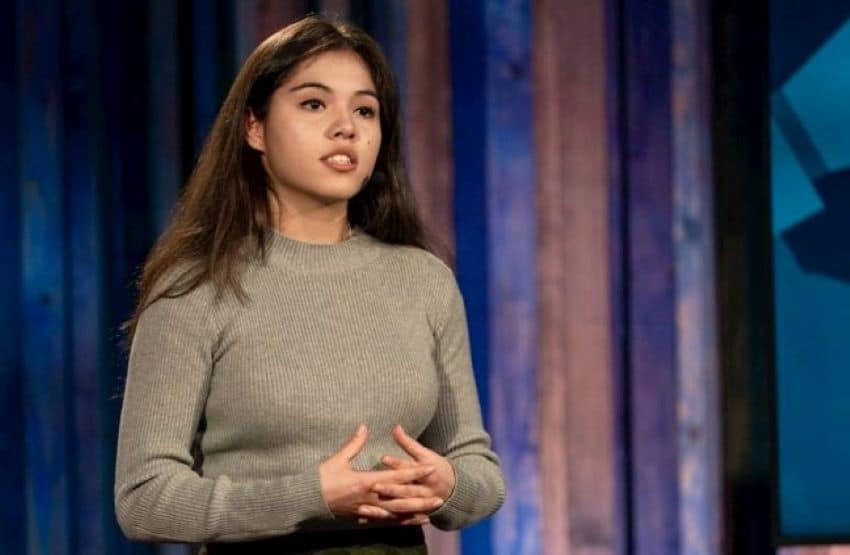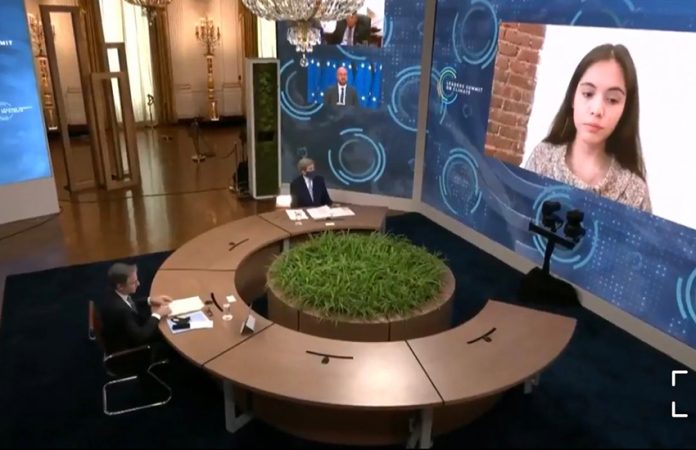A 19-year-old Mexican environmental activist delivered a sharp rebuke of world leaders at the Leaders Summit on Climate on Thursday, criticizing them for their lack of ambition in tackling the climate crisis and blaming the problem on colonialism and capitalism.
Xiye Bastida, an Otomí-Toltec woman from San Pedro Tultepec, México state, who emigrated to the United States with her family in 2015 due to drought and later severe flooding in her hometown, addressed leaders on the first day of the summit, which is being hosted virtually by United States President Joe Biden.
“The climate crisis is the result of those perpetuating and upholding the harmful systems of colonialism, oppression, capitalism and market-oriented greenwash solutions,” said Bastida, the organizer of “Fridays for Future” climate strikes in New York, an international movement founded by Swedish environmental activist Greta Thunberg.
“The 40 leaders who are in this summit are in the majority from the global north, which has historically perpetuated these systems. The communities who are the most affected — those who have endured displacement because of drought, flooding, wildfires, crop failure and human rights abuse — are not fully represented here today,” she said.
“Solutions must be aligned with the fact that climate justice is social justice. We can no longer keep having summits and conversations around what needs to change because we already have all of the solutions that we need, so all we have to do is implement them.”

Bastida bluntly told leaders that they “need to accept that the era of fossil fuels is over,” asserting that, “we need a just transition to renewables worldwide so that we can stop emitting carbon.”
She enumerated a long list of demands, telling the leaders participating in the two-day summit — among them President López Obrador, President Xi Jinping of China, Prime Minister Boris Johnson of the United Kingdom and President Jair Bolsonaro of Brazil — that they must stop fossil fuel investments and subsidies; put an end to existing fossil fuel extraction; and provide “comprehensive, non-Eurocentric and intersectional climate education, including literacy on climate justice, environmental racism, ancestral and indigenous wisdom, disability justice, green careers and sustainable living.”
“… You will often tell us, again and again, that we are being unrealistic and unreasonable, but who is being unrealistic and unreasonable with unambitious, nonbold, so-called solutions? You are the ones creating and finding loopholes in your own legislation, resolutions, policies and agreements.
“You are the naive ones if you think we can survive this crisis in the current way of living. You are the pessimists if you don’t believe we have what it takes to change the world,” Bastida said.
In a Twitter post, Bastida said she felt proud to have represented Mexico and youth at the summit, “especially when AMLO’s speech fell short in ambition.”
López Obrador’s address was also criticized by other environmentalists, including the director of the Mexican Center for Environmental Law, Gustavo Alanís, and the head of the Mexico Climate Initiative, Adrián Fernández Bremauntz.

“It’s clear that the president didn’t understand what the meeting was about; he minimized environmental issues as much as possible and particularly those that have to do with climate change,” Alanís said.
“What is obvious is that [addressing climate change] is not a priority for him, nor does he care [about the issue],” said Fernández, referring to a president who has abolished a public climate-change trust and implemented policies that favor the use of fossil fuels over renewable sources of energy.
In his address, López Obrador said that Mexico will discontinue exporting crude oil and use its reserves to meet domestic demand for fuel. In addition, he indicated that hydroelectric plants are being upgraded to reduce the use of fuel oil or coal in electricity production.
But the central message of the president’s remarks to the summit was an invitation to President Biden to support the expansion of Mexico’s Sembrando Vida program (Sowing Life) in southeastern Mexico and Central America by planting 3 billion trees and creating 1.2 million jobs.
Also critical of López Obrador’s address and the federal government’s climate initiatives was María Daniela Rivero, founder of the Red de Jóvenes Ambientalistas (Network of Young Environmentalists), an activist group.
“Mexico does not have strong environmental discourse,” she said. “… The majority of our political leaders are not even qualified to [address] these issues. A paradigmatic change is urgent. … The Sembrando Vida program has a facade of being a pro-environment and reforestation program, but, on the contrary, it’s removing trees to plant trees,” she said.
